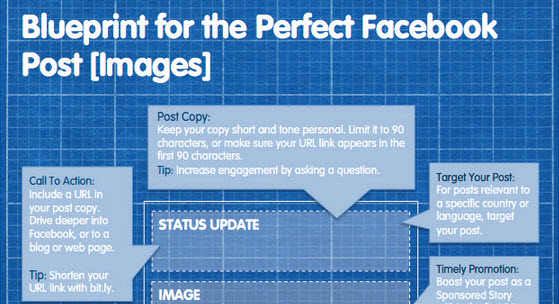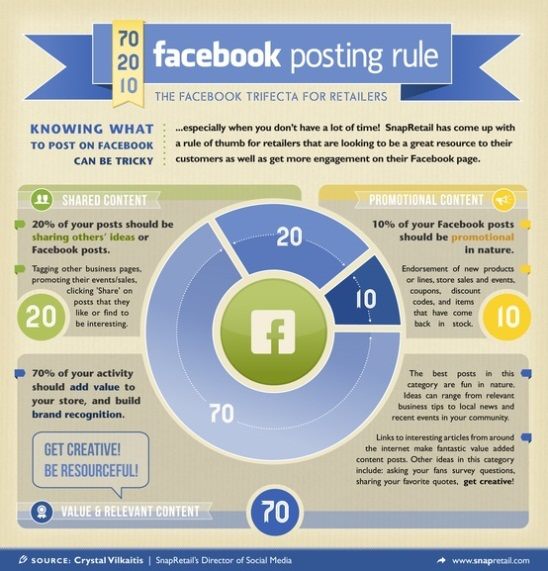Research Study: Customers Still Prefer Websites Over Facebook Pages
 It seems everywhere you look companies are spending increasing time and dollars building their Facebook presence. These businesses are spending more time and resources chasing “likes” on their Facebook pages than refining the content appeal, lead generation and conversion elements of their website. It makes for an interesting question…
It seems everywhere you look companies are spending increasing time and dollars building their Facebook presence. These businesses are spending more time and resources chasing “likes” on their Facebook pages than refining the content appeal, lead generation and conversion elements of their website. It makes for an interesting question…
Should You Invest More In Facebook Pages Or Your Website?
Common sense and some new research says investing in your Facebook business pages at the expense of your website may not produce superior marketing results. Take a moment to consider…
Would You Rather Be A Renter Or An Owner?
As for common sense, I still can’t understand why businesses are investing more time and energy in building their Facebook pages than their own website. It doesn’t quite make sense when you consider:
- Facebook is a web platform your company doesn’t own and can’t control. Your company Facebook page is space you rent in someone else’s building. It’s a handshake deal, that gives you no real legal rights, but Facebook (the landlord) says they’ll take care of you. However, they are always changing the terms and configuration of your space. Plus, the hard work you put into improving “your Facebook rental space” builds the landlord’s business equity far more than yours.
- Your website is under your complete control and you have total ownership of it (assuming you’ve set it up correctly). Your company website is space that resides in a building and on property you own. You have legal ownership of your domain name and are the direct beneficiary of the improvements you make. As your site gains virtual authority and influence on the web – your online equity increases as well.
 What Do Your Customers Want?
What Do Your Customers Want?
But if the above representation doesn’t quite make sense – here’s a more concrete reason why your landscape, paving or snow company should prioritize development and content improvement of your website over your Facebook presence: Your customers want it that way.
Research from social marketing firm Get Satisfaction and analyst Incyte Group in which 2000 people were surveyed, show consumers still prefer visiting a companies’ websites more than their Facebook pages.
Other findings from the study include:
- When people log onto social networks like Facebook, 70.2 percent of them do so for social networking, but only 12.8 percent said they visit social media to interact with brands.
- When customers wanted information to make a purchasing decision, 89.3 percent went straight to the company’s website; 21.2 percent used a social network.
- Customers who wanted to learn more about a product were more likely to visit the company’s website (81.1 percent) than the Facebook brand page (19.9 percent).
- Get Satisfaction and Incyte Group determined that Facebook users don’t want brand relationships to be a part of their social media experience. Instead, they want the companies’ websites to be more like social networks where they can get information, as well as reviews and comments.
- The primary reason people interact with branded communities like Facebook pages is to get information quickly (32.1 percent) and to get answers from fellow consumers (21.3 percent).
- With regard to what users do on branded social communities, 32.5 percent said they read content, 19.5 percent said they shared content, 18.1 percent learned from others.
The Moral Of The Story
It’s smart strategy to prioritize resources to the ongoing development and optimization of your website over Facebook pages. Facebook should certainly have it’s place in any landscape, paving or snow contractor’s overall web presence marketing plan – but it should be a resource that feeds your website – rather than on building your Facebook pages.
A solid strategy: Commit to regularly improving the web properties you own (website, blogs, landing pages) and distribute content from them to your Facebook “rental property” (business pages). Also – integrate your Facebook page content with your your website – where visitors can still interact with your Facebook content – they just do it on webpages you own. The goal is to move visitors from engaging with you primarily on rental properties (Facebook) to properties you own (email lists, websites, blogs) so that if Facebook disappears or limits your usage of it – your marketing benefits won’t go down the drain with it.










Leave a Reply
Want to join the discussion?Feel free to contribute!